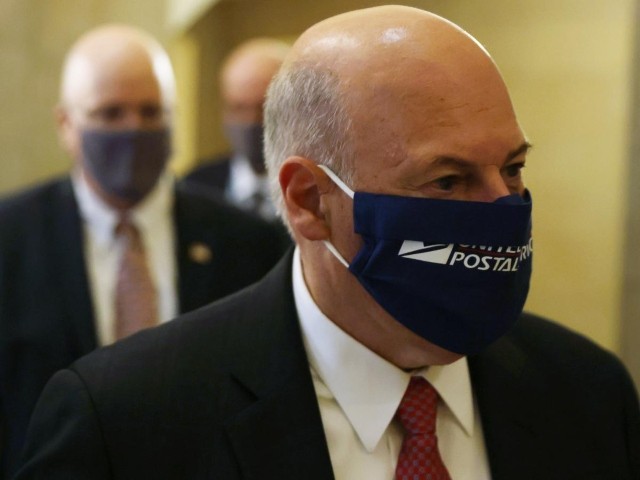The Biden administration on Wednesday pushed back on the United States Postal Service’s plan for a new fleet of gasoline-powered delivery trucks, claiming they would add to so-called climate change and endanger the health of Americans.
The plan is to spend $11.3 billion on as many as 165,000 trucks over the next decade, which is at odds with President Biden’s goal to replace gasoline-powered federal vehicles with a “clean energy” fleet.
The Environmental Protection Agency (EPA) sent a letter to the postal agency asking it to reconsider its plan, saying its Environmental Impact Statement was “seriously deficient” and called for public hearings.
“The Postal Service’s proposal as currently crafted represents a crucial lost opportunity to more rapidly reduce the carbon footprint of one of the largest government fleets in the world,” Vicki Arroyo, the EPA’s associate administrator for policy, wrote in the letter.
Biden’s EPA has a beef with Postmaster General Louis DeJoy, who was appointed by President Donald Trump.

U.S. Postmaster General Louis Dejoy arrives at a meeting at the office of Speaker of the House Rep. Nancy Pelosi (D-CA) on August 5, 2020 (Alex Wong/Getty Images).
The Washington Post reported on the development:
DeJoy, who oversaw the agency’s decision to award the truck contract to Wisconsin-based Oshkosh Defense, signed off on a plan calling for only 10 percent of the new trucks to be electric and offering only a 0.4 mile-per-gallon fuel economy improvement over the agency’s current fleet, which is nearly 30 years old. When asked why the Postal Service wasn’t buying more electric vehicles, he said it couldn’t afford them.
Over the past week, environmentalists and California’s top air quality regulator have called on the EPA to block the Postal Service from moving forward with what they described as a poorly thought-out purchase that would harm communities across the country. They asked the EPA to refer the dispute to the White House Council on Environmental Quality, which mediates disagreements between federal agencies over actions affecting the environment and public health.
EPA officials declined to invoke this rarely used power. Instead, senior administration officials, who spoke on the condition of anonymity to discuss internal deliberations, said they decided to send the warning letters to the Postal Service to give its leadership a chance to voluntarily change course. They acknowledged that DeJoy might reject their requests, as he has rebuffed previous calls for the agency to rethink its plans. But they said that even if the postmaster general charged ahead with an order for mostly gas-powered vehicles in 2023, the contract’s first year, there is still time for the agency to pivot to electric trucks in later years if more funding became available or the leadership’s perspective changes.
Adrian Martinez, an attorney for the environmental law firm Earthjustice, said in the Post report that if the post office — which is independent from the executive branch — goes ahead with its plan, legal challenges would be mounted.
“It is hard to predict what courts will do, but the Postal Service’s work here is just so embarrassingly flimsy,” Martinez said. “They don’t reveal the source of the information for many of their conclusions, instead dismissing electrification outright.”
But the postal agency said it is acting responsibly.
“While we can understand why some who are not responsible for the financial sustainability of the Postal Service might prefer that the Postal Service acquire more electric vehicles, the law requires the Postal Service to be self-sufficient,” agency spokeswoman Kimberly Frum said in a statement.
The Post reported that the postal service is $206.4 billion in debt and yet is “flush with cash” — $23.9 billion in liquidity — thanks to coronavirus stimulus funding.
Follow Penny Starr on Twitter.

COMMENTS
Please let us know if you're having issues with commenting.